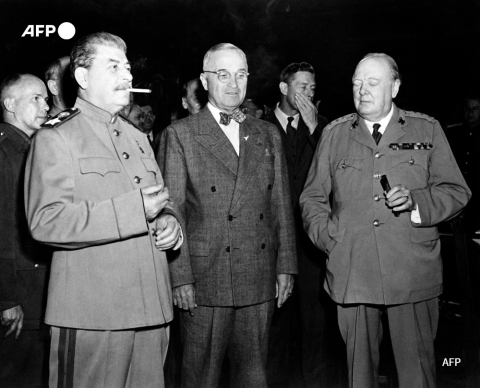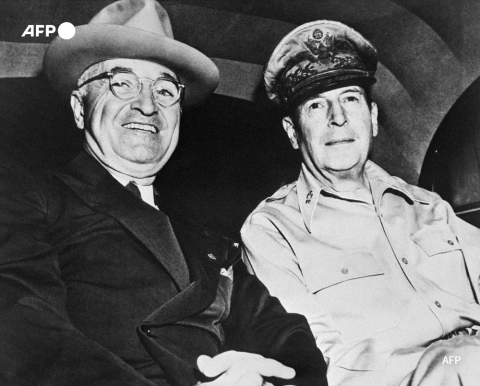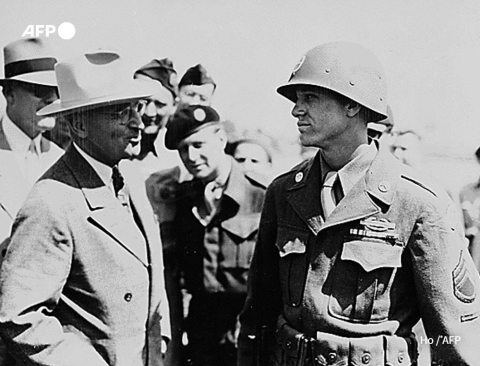Harry Truman : The man who pushed the button

Harry Truman had been US president for just four months when he became the only man to order the use of atomic bombs, on the Japanese cities of Hiroshima and Nagasaki.
Regarded as a weak understudy while serving as vice-president to Franklin D. Roosevelt, Truman became president upon FDR'S death on April 12, 1945.
It fell to Truman to end World War II, while under his leadership, tension with the Soviet Union escalated into the Cold War.
According to the White House website, while serving as vice president, Truman scarcely saw Roosevelt, and received no briefings on the development of the atomic bomb or unfolding difficulties with Soviet Russia.
It was only on April 25, two weeks after Roosevelt's death, that Secretary of War Henry Stimson informed Truman of the colossal possibilities, and responsibilities, offered by nuclear weapons.
- Historic decisions -
Suddenly these and a host of other wartime problems became Truman's to resolve.
"I felt like the moon, the stars, and all the planets had fallen on me," Truman told reporters.

As president, Truman made some of the most crucial decisions in US history.
Soon after the German WWII capitulation in Europe, the war against Japan had reached its final stage. A call for Japan to surrender was rejected.
Truman, after consulting with his advisors ordered that atomic bombs be dropped on cities supporting the war effort, the first was Hiroshima and the second, by chance, was Nagasaki.
The Japanese surrender quickly followed, but importantly, Truman had also brandished the US' nuclear clout before Soviet leader Joseph Stalin.
"I knew what I was doing when I stopped the war...I have no regrets and, under the same circumstances, I would do it again," he wrote later.
- Containing the Soviet Union -
Truman had initially followed his predecessor's policies, but soon developed his own.
Bolstered by the A-bomb, a technological and military trump card, Truman broke with previous US foreign policy, which was traditionally isolationist.
The "Truman Doctrine" of containment became the US policy to stop Soviet expansion during the Cold War.
He told Congress on March 12, 1947 that it must be US policy to support "free people".

The Truman Doctrine included the Marshall Plan, named after his secretary of state, which stimulated economic recovery in war-torn western Europe.
In June 1945, Truman witnessed the signing of the charter of the United Nations, established to preserve global peace.
His second term was marked by deep international tensions however, with the explosion in August 1949 of the first Soviet nuclear bomb and the start of the Korean War a year later.
Meanwhile, he built a military alliance to protect Western nations, the North Atlantic Treaty Organisation (NATO), established in 1949.
Harry Truman was born in Lamar, Missouri, on May 8, 1884.
He was rejected by the West Point military academy because of his poor vision and for 12 years prospered as a Missouri farmer.
He was the last US president to hold office without having graduated from university.
Truman served in France during World War I as a captain in the field artillery. Returning home, he married Elizabeth Virginia Wallace, and opened a clothing store in Kansas City, which went bankrupt in 1921.
Active in the Democratic Party, Truman became a US senator in 1934 after holding several administrative posts.
During World War II he headed the Senate war investigating committee that looked into waste and corruption, and saved up to $15 billion.
That set him up for the vice presidential nomination, after which he and FDR won the 1944 election.
Though he was unpopular on his departure from the White House, the legacy of Truman, who died aged 88 on December 26, 1972, was later more positively reassessed by US historians.
